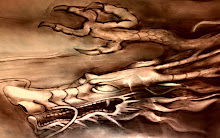It comes as no surprise that China did not ratify the Convenant on Political and Civil Rights, but for some, it may come as suprise that the world's grand and booming orator on human rights, the United States, did not ratify the Convenant on Economic, Social and Cultural Rights. China however, in line with the majority of developing nations, did ratify this second Convenant. Regardless of my personal opinion, I think it is perfectly logical that a nation as large as China, with China's history, insists that the right to develop and the right to subsist be prioritized over individual rights.
In regards to these two convenants, we can jusifiably conclude that the boxing rounds between these two powerhouses about human rights do not actually include any agreement about the nature of human rights. The US accuses China of being an authoritarian state impinging on people's civil and political rights, and China, in turn, accuses the US of being a 'violent, crime-ridden society' that 'does not guarantee the personal safety' of its citizens.
Articulating the Chinese understanding of human rights, also sheds light on the logic of a billion Chinese standing up to say: "China brought human rights and freedom to Tibet, a feudal nation wallowing in poverty and slavery." What remains doubtful of course, even within China's own mindset of human rights, is just how China has brought 'cultural rights' to the Tibetan state.
All this aside, I can't help but notice that despite China's aggressive claims to the protection and advancement of human rights, a soft underbelly of uncertainty belies the public consciousness. I dug a knife into this underbelly earlier this week, when I messaged my editor, proposing the inclusion of a unit on human rights in a series of high school textbooks that I'm writing. Her response was all too clear: "Harmony, and One World, One Dream. Thanks."
Reference: Ching, Frank, China: The Truth about its Human Rights Record, Random House, Great Britain, 2008.
*















































